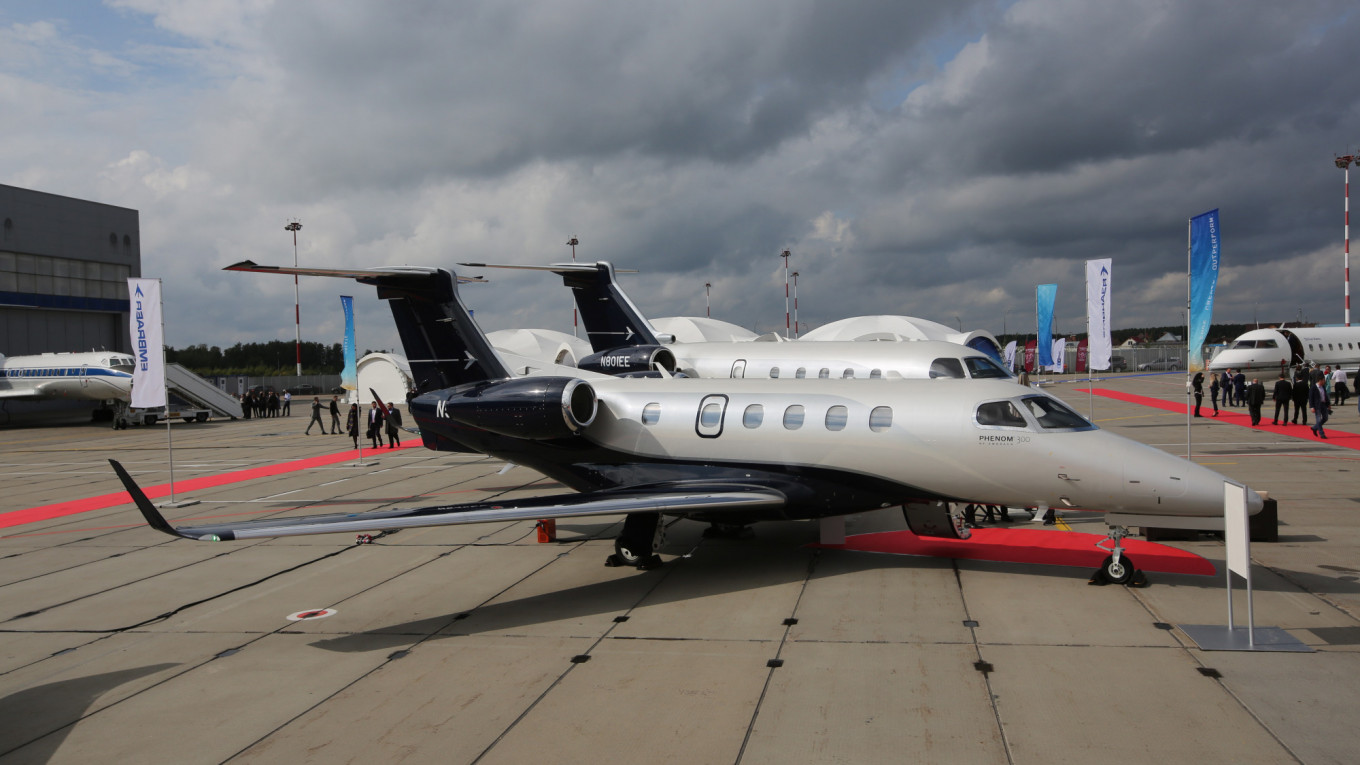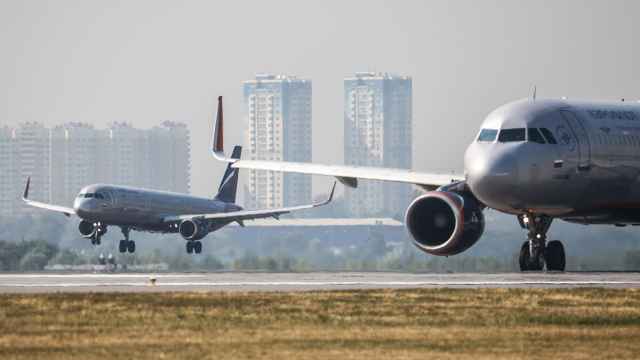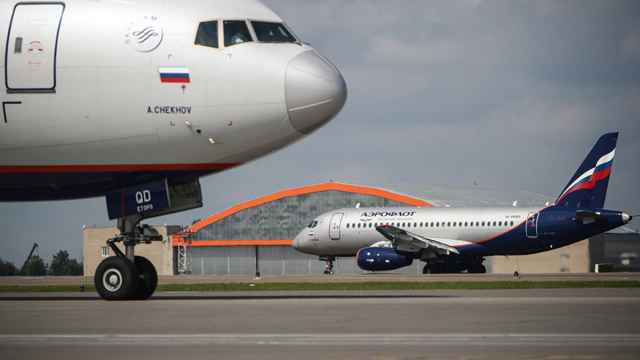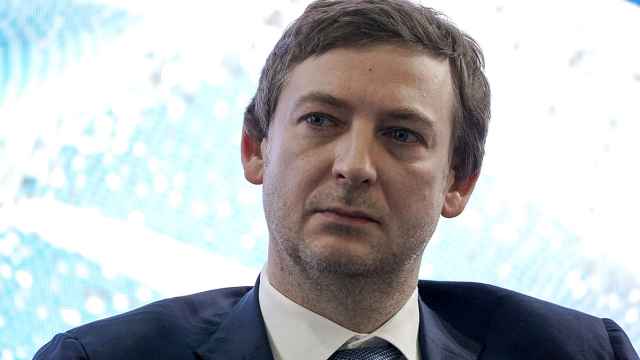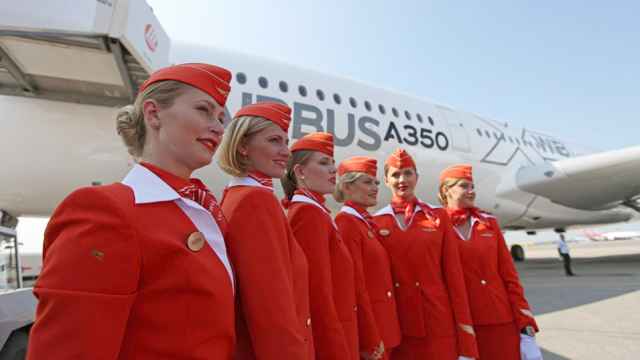Demand for private jets from wealthy Russians has soared this year, with the number of flights up 32% from pre-pandemic levels, according to data from WingX Advance GmbH, a research and consulting company specializing in the business aviation industry.
While Russian commercial flights are mostly absent from European holiday destinations, with only a few flights going to the U.K. and Greece, private jet traffic does not fall under Russian and EU aviation legislation, allowing those Russians with EU residence permits or second passports to fly to otherwise closed countries.
“Private jets solve the problem of limited flights to Europe and other destinations,” said Yevgeny Bikov, from private travel company Your Charter.
“As we approach the summer, we have seen a 50% increase in requests to fly privately compared with pre-pandemic 2019, mostly to Western Europe. Demand often actually exceeds the possibilities to fly abroad,” he added
Bikov said the most popular elite summer hotspots they are sending clients to include Nice on the French Riviera and the Spanish seaside resorts of Mallorca, Ibiza and Malaga.
“We expect a further increase in the coming months as our clients will be keen to visit their second houses and resorts in Europe,” said Yelena Stepnovaya commercial director at Sirius Aero, a firm that specializes in managing private jets travel.
As well as allowing international travel, private jets have made rich Russians feel safe during the pandemic.
“There are never more than 10-15 people around. No lines, no hassle. This is another reason for the growing popularity of the private planes industry,” Stepnovaya said.
As a result, the private jet industry has recovered far more quickly than commercial airlines in Russia.
According to estimates by the RBK business outlet, in 2020 Russian commercial airlines lost at total 125 billion rubles ($1.7 billion) and major airlines including S7 had to cut a third of staff to stay afloat.
The revival of the private sector has come hand-in-hand with an increase in the net worth of Russia’s rich by as much as 20% during the pandemic, consultants PwC and Swiss bank UBS said in a 2020 report, boosted by booming global stock markets.
The super rich are also managing to circumnavigate geopolitics by using private planes, according to Your Charter’s Bikov.
As the EU was preparing to ban Belarusian planes from its skies and airports after the forced grounding of a Ryanair flight with opposition journalist Roman Protasevich on board, he said he was receiving calls from “worried” clients in Belarus who wondered if they could still use his services to get into Europe.
“At the moment, they can fly, no problem!” Bikov said.
“And if the EU bans private planes, we’ll come up with a new way to get our clients to Europe,” he added.
Medical visas and vaccine passports
Russians wanting to visit Western Europe currently have two options, said Vadim Zhevnov, manager at boutique Russian concierge service The Fixer.
The traditional route used by Russians is through holding an EU residency permit or a European passport in addition to their Russian one. Malta and Cyprus have been eager to issue so-called “golden passports” to foreigners willing to invest into the countries.
According to the FT, Russian investors and their families accounted for nearly half of the 3,153 golden passports awarded in Cyprus between 2013 and February 2018.
Another route that has sprung up and gained popularity during the pandemic is “medical permits,” where European hotels — for a hefty fee — provide Russian tourists with medical certificates from local clinics that allow them into the country.
The service has been particularly popular in Italy, said Bikov, while Stepnovaya said that 70% of her clients had rented private planes to visit their second homes or make use of medical services.
While it’s legal for hotels to issue medical permits, several users of this service told The Moscow Times they didn’t actually need medical treatment.
Dmitriy, a Russian businessman who asked for his last name to be withheld as he plans to use the medical scheme in the future, told The Moscow Times that he and his family went to a resort near Italy’s Lake Como last March using the service.
With the emergence of vaccine passports in Europe, Russian operators and concierge services have also started to discuss ways to help their affluent clients bypass vaccination rules, as many in Russia have been reluctant to have jabs.
“In Russia, it won’t be hard to get hold of a certificate for a client even without a vaccine,” said one employee at another private boutique service who wished to remain anonymous.
Currently, the Sputnik V vaccine is only accepted in Greece and Slovakia, but the EU has said it will accept it if it gains approval from European regulators this summer.
The Moscow Times found Sputnik V certificates and negative test results for sale on the darknet.
Domestic Boom
Border closures and scarcity of flights have also created a market for domestic private jet travel, demand for which has doubled, according to WingX Advance.
“Russian resorts are very hot right now,” said The Fixer’s Zhevnov.
Sochi, a popular seaside city, saw a 66% increase in trips over the May holidays compared to pre-pandemic times, with hotel prices more than doubling.
Along with the ordinary holidaymakers came the wealthy, and Zhevnov said his company is now getting to grips with providing VIP accommodation and tours in southern Russia.
“When a client is used to resorts on the Cote D’Azur, they get a little culture shock when checking into a Volgograd hotel.”
A Message from The Moscow Times:
Dear readers,
We are facing unprecedented challenges. Russia's Prosecutor General's Office has designated The Moscow Times as an "undesirable" organization, criminalizing our work and putting our staff at risk of prosecution. This follows our earlier unjust labeling as a "foreign agent."
These actions are direct attempts to silence independent journalism in Russia. The authorities claim our work "discredits the decisions of the Russian leadership." We see things differently: we strive to provide accurate, unbiased reporting on Russia.
We, the journalists of The Moscow Times, refuse to be silenced. But to continue our work, we need your help.
Your support, no matter how small, makes a world of difference. If you can, please support us monthly starting from just $2. It's quick to set up, and every contribution makes a significant impact.
By supporting The Moscow Times, you're defending open, independent journalism in the face of repression. Thank you for standing with us.
Remind me later.


